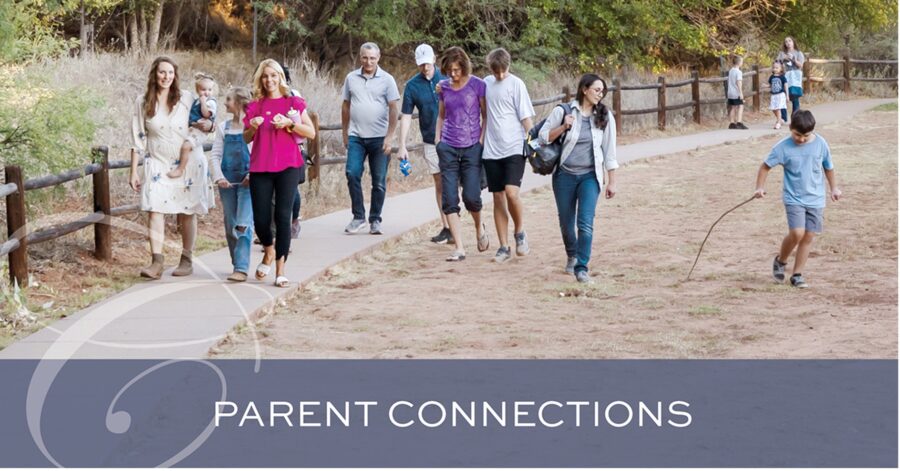“Really, homeschooling? Aren’t you afraid you’re going to mess up your kid?”
You’ve probably heard these kinds of questions before. Maybe you’ve even asked them yourself. Hey, maybe you’re still asking them. Homeschooling is a big investment in terms of time, energy, and your child’s future; it’s natural to have worries! But, while some worries are entirely rational, many of the arguments against homeschooling are shrouded in misinformation.
Considering the Disadvantages of Homeschooling
Let’s clear the air about the supposed disadvantages of homeschooling.
“Are You Qualified to be a Teacher?”
Did you know that certain studies have shown that babies begin learning language in the womb?1 Talk about qualifications: moms become teachers before their babies are even born!
Every parent is a teacher by nature. From the first vowel sounds your child in utero hears you utter to the day your child leaves and cleaves, you are that child’s role model and steward of knowledge. You will shape your child’s character, color your child’s perceptions, sketch your child’s worldview.
You are your child’s first teacher. You are your child’s best teacher.
Of course, there’s always room to grow as a teacher! By joining a local homeschooling community, you can draw from the experiences of parents like you. And as a Classical Conversations® member, you can receive the benefits of an extensive curriculum, further training alongside fellow parents, and online resources through CC Connected. And if you really want to go the extra distance, Southeastern University offers college credit and an exclusive MA in Classical Studies for parents homeschooling with Classical Conversations.
Note: Some states may require parents to obtain certain qualifications before homeschooling [e.g., a high school diploma or its equivalent]. Check out HSLDA’s website to find your state’s requirements.
“Is Your Kid Going to be Ready for College?”
Homeschooled students don’t merely do well in college. They excel.
One nationwide study published in Academic Leadership: The Online Journal in 2010 found that “homeschool student achievement test scores [were] exceptionally high,” with mean scores in the eightieth percentile on every subtest (including reading, language, math, science, and social studies). Students with traditional schooling, meanwhile, averaged around the fiftieth percentile.2
Okay, high test scores are good, but what about classroom performance?
Another study conducted by SUNY Brockport in 2015 discovered that among students who had not taken college-level precalculus, the mean grade of homeschooled students enrolled in college-level calculus was 87.2 out of 100, whereas the mean grade of other students was 78.9–82.3 out of 100.3 Simply put, not only do homeschool students typically do better on various achievement tests, but they also do better in actual college classes like calculus!
Clearly, college readiness falls on the pro side of any pros and cons of homeschooling list.
“Won’t You Get Tired of Spending So Much Time With Your Family?”
Probably.
Conflict is inevitable. Whether your child learns at home or spends six hours a day at public school, there will come moments when you’re praying for the strength not to run away and join the circus for the relative peace and quiet. Homeschooling, however, gives parent and child tangible objectives. Conflicts must be resolved for the day to go on.
In other words, conflict is actually one of the many psychological benefits of homeschooling. Conflict in homeschooling provides opportunities for growth: growth in patience for the parent, growth in discipline for the child, and growth in love for both.
Of course, a support network can help alleviate the occasional feeling of educational cabin fever. Homeschooling communities afford support and fellowship, and you can also attend frequent homeschooling events to see some new faces every now and again.
“Don’t Homeschool Kids Turn Out Weird and Antisocial?”
First of all, rude. Second of all, no.
Most studies have shown that homeschool kids are at no particular disadvantage when it comes to the issue of social development.4 Homeschoolers usually have no shortage of opportunities for social interactions—unless they happen to live in Antarctica, in which case their social interactions may be limited to honking hello to neighboring macaroni penguins.
However, there is one real disadvantage to homeschooling here: milestones events. Celebrations, extracurricular activities, graduation ceremonies, field trips, tournaments—these are important! Homeschool parents must make an effort to provide their children with these opportunities. Fortunately, Classical Conversations has got your back with big and fun events like formal debates, National Memory Master, Spring Protocol, and National Commencement. Of course, you can also look to your local community for sports (such as community gymnastics or children’s soccer leagues) and clubs (like scouting organizations or youth discipleship programs.)
“Doesn’t Homeschooling Take a Lot of Hard Work?”
Yes, it sure does! Homeschooling takes time, effort, and nerve. Not to understate the case, but children have been known to be difficult from time to time. You’ll have to keep records (in fact, some states require a fair amount of paperwork). You’ll have to stare down your own self-doubt. And despite the fact that COVID-19 made temporary homeschoolers out of nearly everyone, prejudicial hold-outs may remain. Yes, homeschooling is hard.
But is that a reason not to homeschool?
Not at all! There are plenty of ways to alleviate these difficulties. Don’t homeschool alone. Instead, join a community and find a support network. Don’t create your curriculum entirely from scratch—that way lies madness! Ease your burden with a proven curriculum and other available resources. And, perhaps most importantly, don’t burn yourself or your student out. Schedule routine breaks, plan restful activities, and have fun. And remember: rest and fun are key ingredients of learning.
The Disadvantages of Homeschooling: More Myth Than Fact?
The disadvantages of homeschooling are often overstated and, in some cases, entirely fabricated. Yes, homeschooling is often a challenge, but it’s also highly effective, and the rewards are staggering. Your child deserves the best possible education—and no one can educate your child better than your child’s first educator.
Not yet a Classical Conversations member and interested in our community-based approach to homeschooling? We’d love to hear from you! To learn more about us, click here.
- Christine Moon, Hugo Lagercrantz, Patricia Kuhl, “Language Experienced in Utero Affects Vowel Perception after Birth: A Two-Country Study,” Acta Paediatrica (2012): 1. http://ilabs.uw.edu/sites/default/files/2013%20Moon_Lagercrantz_Kuhl.pdf
- Brian Ray, “Academic Achievement and Demographic Traits of Homeschool Students: A Nationwide Study,” Academic Leadership: The Online Journal, Vol. 8: Iss. 1, Article 7 (2010): 48. https://scholars.fhsu.edu/alj/vol8/iss1/7
- Carol Wade, Christian Wilkens, Gerhard Sonnert, and Philip Sadler, “Are Homeschoolers Prepared for College Calculus?” (2015): 44. https://core.ac.uk/works/85142991
- Brian Ray, “Academic Achievement and Demographic Traits of Homeschool Students: A Nationwide Study,” 3.




